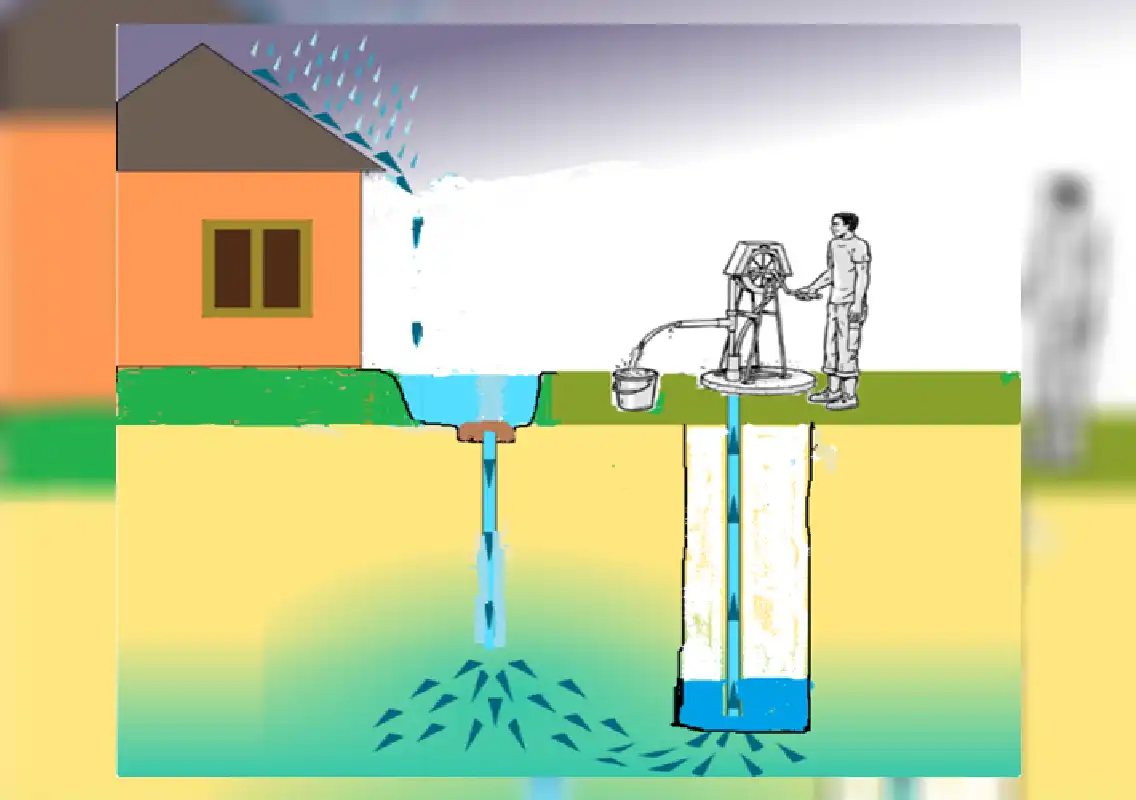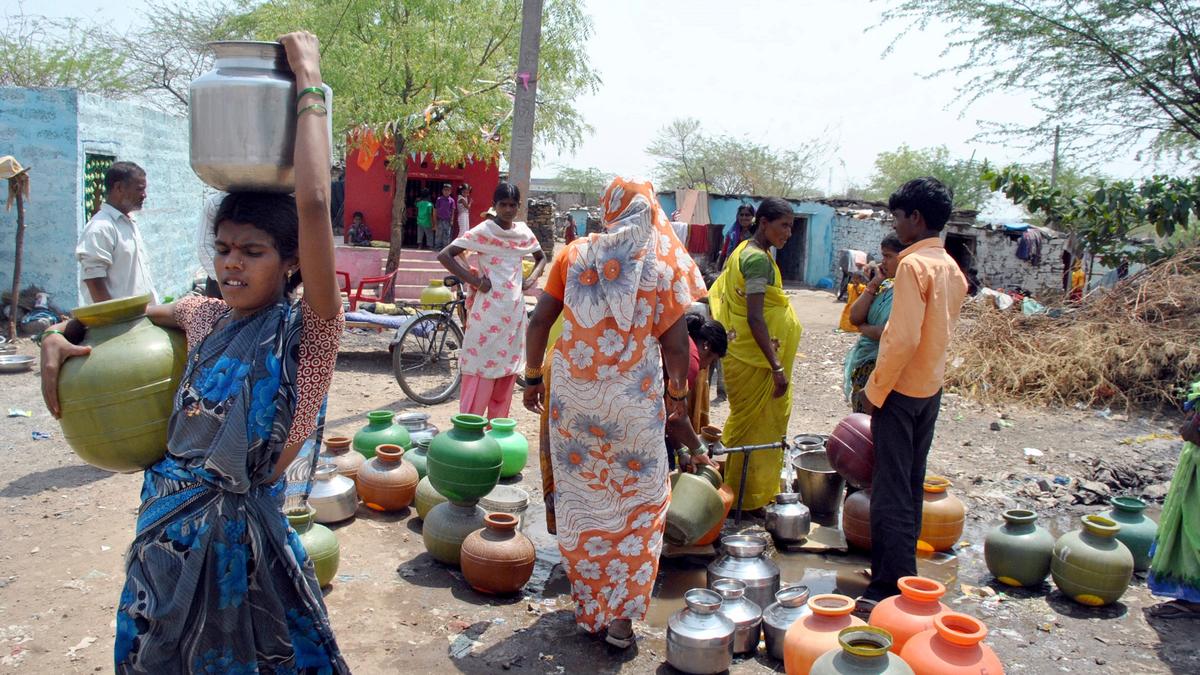The Karnataka government is set to launch the ambitious Neeriddare Nale scheme on October 9, aimed at developing and conserving groundwater resources across the state. The program, part of a broader water security and rural development initiative, seeks to address the growing challenges of water scarcity and depletion of aquifers in both urban and rural areas. Under the scheme, priority will be given to regions experiencing severe water stress, and efforts will include rejuvenation of existing water bodies, construction of recharge structures, and promotion of sustainable water use practices among farmers and local communities.
Focus on sustainable groundwater management: Neeriddare Nale
Neeriddare Nale will emphasize sustainable development and management of groundwater resources, integrating traditional water conservation methods with modern technology. The scheme includes the mapping of aquifers, installation of monitoring systems, and use of satellite data to identify critical zones requiring intervention. Local panchayats and Gram Sabhas will be actively involved in planning and implementation, ensuring that groundwater management strategies are community-driven and context-specific. Public awareness campaigns will educate residents on rainwater harvesting, recharge wells, and responsible water usage.

Implementation framework and benefits
The program will be implemented through coordination between the Karnataka Water Resources Department, local authorities, and expert agencies. Beneficiaries, particularly farmers and rural households, will receive technical assistance and financial support for constructing recharge structures, deepening wells, and restoring ponds. The scheme aims to increase groundwater availability, enhance irrigation potential, and reduce dependence on external water sources. Officials have emphasized that Neeriddare Nale will contribute to long-term water sustainability, improve crop productivity, and strengthen resilience against drought conditions.
The Neeriddare Nale scheme represents a paradigm shift in Karnataka’s approach to water resource management, focusing not only on groundwater recharge but also on fostering a culture of conservation. By integrating traditional water conservation techniques such as percolation tanks, farm ponds, and check dams with modern technology like GIS mapping and remote sensing, the program aims to create a comprehensive water security framework. Villages will be prioritized based on water stress levels, crop patterns, and historical rainfall data, ensuring that interventions are strategically targeted for maximum impact.
Officials have emphasized the importance of community participation in the scheme’s success. Gram Panchayats and local water committees will play an active role in planning, implementing, and monitoring recharge and conservation projects. Regular training sessions will educate villagers on the construction and maintenance of recharge structures, proper use of rainwater harvesting systems, and monitoring of groundwater levels. This participatory approach is expected to instill a sense of ownership among residents, ensuring long-term sustainability of water management initiatives.
The scheme also includes financial incentives for farmers who adopt water-saving practices and implement recharge measures on their land. Subsidies will be provided for the construction of farm ponds, recharge wells, and bunding projects. Additionally, technical guidance from agriculture and water resource experts will be offered to optimize water use efficiency. By aligning economic incentives with environmental conservation, the program encourages farmers to actively contribute to groundwater sustainability.
To address regional disparities in water availability, the Neeriddare Nale scheme will focus on drought-prone areas in Karnataka’s northern and southern districts. By enhancing groundwater storage, improving irrigation reliability, and stabilizing water supply for domestic and agricultural use, the program aims to reduce vulnerability to seasonal water shortages. Pilot projects have already demonstrated significant increases in groundwater levels, providing a model for scaling up the intervention statewide.
The Karnataka Water Resources Department will oversee the implementation of the scheme, ensuring technical quality and adherence to environmental standards. A dedicated monitoring cell has been established to track progress, evaluate outcomes, and provide corrective measures where necessary. Reports on groundwater levels, recharge activity, and project completion will be updated regularly and made available to the public, enhancing transparency and accountability.
Integration with digital technology is a key feature of Neeriddare Nale. Mobile applications and web-based platforms will allow farmers and local officials to monitor groundwater levels in real-time, receive weather forecasts, and track the progress of water conservation projects. Data analytics will help identify areas requiring additional intervention and optimize resource allocation for maximum efficiency.
The scheme emphasizes environmental sustainability alongside human development. Recharge projects will be designed to protect soil health, prevent erosion, and maintain local biodiversity. Water bodies restored under the program will support aquatic life and provide habitats for migratory birds. Community engagement programs will promote eco-friendly practices such as organic farming, composting, and sustainable cropping patterns, linking water management with broader environmental stewardship.
Workshops and training sessions under Neeriddare Nale will also focus on empowering youth and women to take active roles in water conservation. Local schools will conduct awareness programs, encouraging students to participate in monitoring groundwater and maintaining village ponds. Women’s self-help groups will be involved in managing water infrastructure, conducting awareness campaigns, and promoting rainwater harvesting practices in households.
A special monitoring committee has been established to ensure timely execution and transparency of the scheme. Data on groundwater levels, recharge rates, and project progress will be publicly available through an online dashboard. This will enable citizens, researchers, and policymakers to track outcomes and make informed decisions. The committee will also coordinate with financial institutions to facilitate credit support for water-related infrastructure.
The launch on October 9 will include awareness drives, workshops, and demonstrations in selected villages to showcase the benefits of groundwater development initiatives. Farmers and local leaders will be invited to participate, ensuring that knowledge transfer is both practical and context-sensitive. Officials hope that early success stories will motivate wider adoption of Neeriddare Nale strategies across Karnataka.
The Neeriddare Nale scheme represents a significant step in Karnataka’s efforts to achieve water security and sustainability. By combining government support, community participation, and technological intervention, the program seeks to reverse the trend of groundwater depletion. Authorities have emphasized the importance of collective action, urging citizens, farmers, and local bodies to actively contribute to conservation efforts.
Environmental experts have welcomed the initiative, noting that integrated groundwater management can improve soil health, increase agricultural yields, and reduce the vulnerability of rural populations to climate variability. The scheme also aligns with national priorities on water conservation and sustainable rural development. Authorities are optimistic that Neeriddare Nale will serve as a model for other states facing similar water challenges.
The scheme also includes training programs for local youth to serve as “Water Ambassadors,” responsible for monitoring groundwater levels, maintaining recharge structures, and promoting water-saving practices in their communities. This participatory approach aims to build long-term capacity and ensure the sustainability of the program beyond its initial implementation period.
By providing both technical and financial support, Neeriddare Nale seeks to empower rural households and farmers to take ownership of their water resources. Initiatives such as well deepening, pond restoration, and rainwater harvesting are expected to increase water availability for domestic and agricultural use, reducing seasonal water stress. The scheme emphasizes cost-effective solutions that can be replicated across different geographic and hydrogeological contexts.
Officials have highlighted that Neeriddare Nale will complement ongoing irrigation and water conservation projects in the state. Integration with existing schemes, such as micro-irrigation programs and watershed development initiatives, will enhance efficiency and avoid duplication of efforts. Collaboration with research institutions and NGOs is also planned to ensure that interventions are evidence-based and adapted to local conditions.

The Karnataka government has allocated substantial budgetary support for the scheme, ensuring timely execution of planned projects. Funds will be disbursed directly to implementing agencies, with strict monitoring mechanisms to prevent mismanagement or delay. Transparency and accountability will be key principles guiding the execution of Neeriddare Nale.
The launch event on October 9 will include demonstrations of rainwater harvesting techniques, recharge well construction, and water budgeting practices for farmers. Officials will also showcase success stories from pilot projects conducted in selected villages over the past year. These examples are intended to highlight the tangible benefits of groundwater development and motivate broader participation.
Officials have also announced incentives for communities that achieve measurable improvements in groundwater levels. Awards and recognition will be given to villages demonstrating exemplary water management practices. This positive reinforcement is expected to encourage healthy competition and foster long-term commitment to sustainable water use.
Neeriddare Nale is designed to address both immediate water scarcity concerns and long-term groundwater sustainability. By emphasizing community involvement, technical expertise, and financial support, the scheme aims to create a model of participatory water management that can be scaled up across the state. Authorities hope that the program will strengthen resilience to drought and climate variability, particularly in semi-arid regions of Karnataka.
The initiative also includes the development of a digital platform for real-time tracking of groundwater resources. Citizens will be able to access information on water levels, recharge activities, and local water infrastructure projects. This data-driven approach aims to improve decision-making, enhance transparency, and promote accountability at all levels of implementation.
The Karnataka government has urged farmers, local bodies, and citizens to actively participate in the Neeriddare Nale program. Officials stress that individual responsibility and community action are critical to ensuring the long-term success of groundwater development initiatives. The scheme is expected to foster a culture of water stewardship, encouraging sustainable practices that benefit both current and future generations.
Through Neeriddare Nale, Karnataka aims to achieve measurable improvements in groundwater availability, agricultural productivity, and rural livelihoods. The integrated approach combining technology, community participation, and government support is expected to make a significant impact on water security across the state. Authorities have expressed confidence that the program will serve as a model for sustainable groundwater management in other regions facing similar challenges.
The launch of Neeriddare Nale on October 9 marks a significant milestone in Karnataka’s water conservation efforts. With comprehensive planning, robust implementation mechanisms, and active citizen participation, the scheme is poised to create lasting benefits for rural communities, agriculture, and the environment. By focusing on groundwater development, the government aims to ensure that Karnataka’s water resources are protected, managed efficiently, and utilized sustainably for generations to come.
Follow: Karnataka Government
Also read: Home | Channel 6 Network – Latest News, Breaking Updates: Politics, Business, Tech & More


